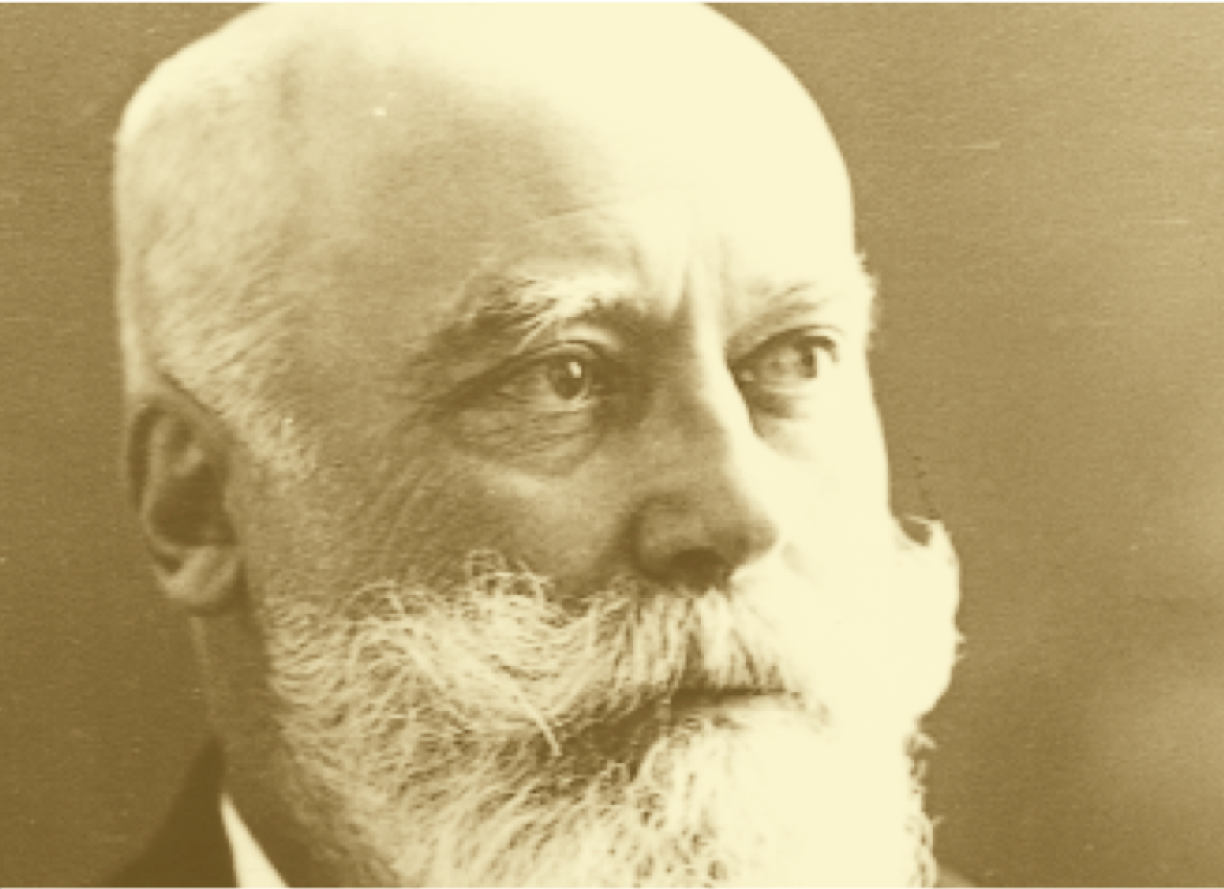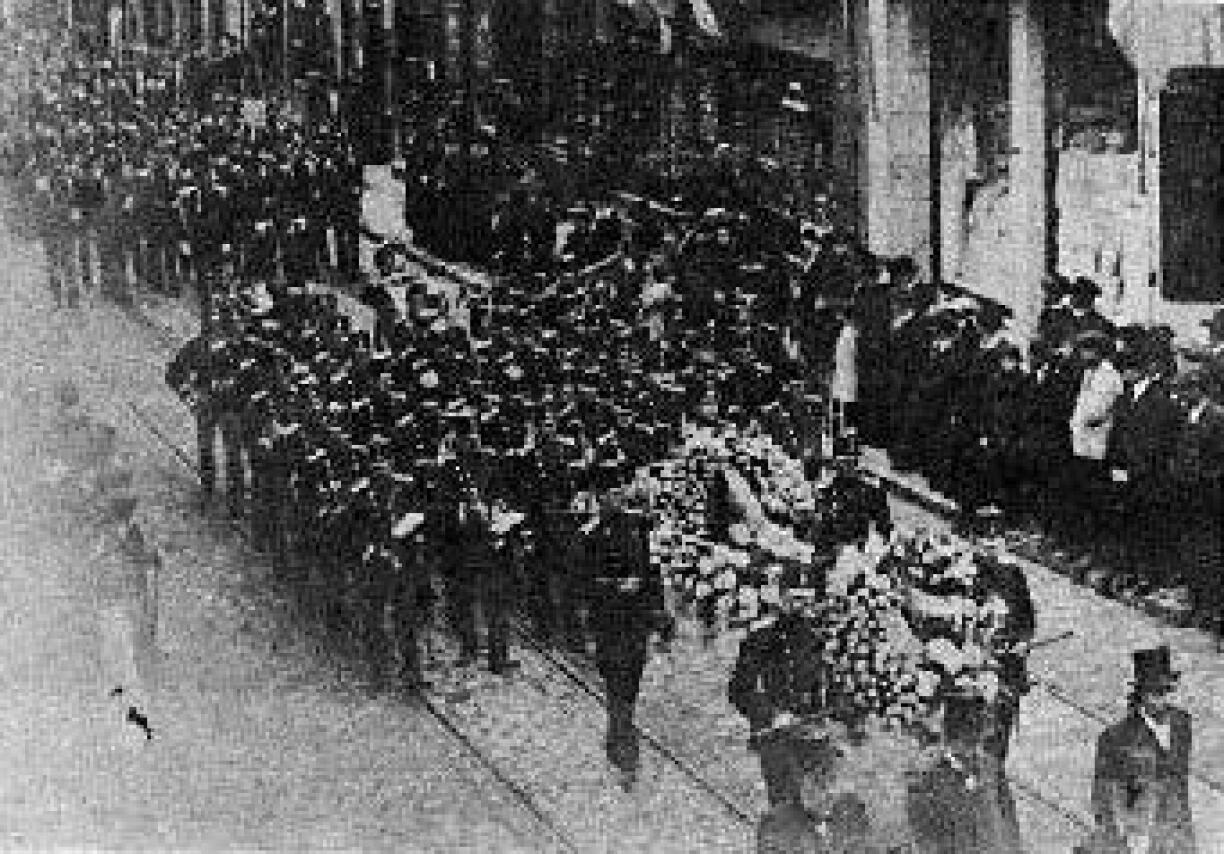
Listen to the episode right here – including other grand old men – or continue reading down below.
Paul Eyschen was born in Diekirch in September 1841, enduring an early tragedy when his mother died before he was five. His father, Charles-Gérard, a prominent figure in Luxembourg politics, served as Director-General for Justice under Prime Minister Charles-Mathias Simons in the 1850s. Charles-Gérard’s involvement in the 1856 coup d’état ensured the Eyschen name was well-known in political circles.
Like his predecessors Théodore de La Fontaine and Emmanuel Servais, Eyschen attended the Athénée de Luxembourg before studying law in Paris. He returned to Luxembourg and was admitted to the bar in November 1865 at the age of 24.
Eyschen’s political ambitions became evident early in his career. In the 1866 elections, he was elected in Wiltz, but was unable to take his seat due to being under the constitution’s age requirement of 25. Undeterred, he ran again in the following by-election, having reached the necessary age, and won.
Eyschen quickly made his mark in the Chamber of Deputies, engaging in key debates on railways, education, religion, and more. From 1875, he served as chargé d’affaires to Germany, building strong diplomatic ties and refining his skills.
In 1876, Eyschen joined the government as Director-General of Justice, the same role his father had held two decades earlier. Under Prime Minister Baron Felix de Blochausen, Eyschen played a pivotal role in reforming the penal code, drawing on the Belgian model, and passing the 1881 Kirpach law, which made primary schooling compulsory for children aged 6 to 12.
Though the 1881 banking crash threatened to destabilise the government, Eyschen was not blamed, and the administration survived. Following de Blochausen’s fall due to an insider trading scandal in 1885, Eyschen remained in his role as Director-General of Justice. When Prime Minister Édouard Thilges resigned in 1888 due to health issues, Eyschen was ready to take the lead.
Upon assuming power in 1888, Paul Eyschen was immediately faced with a pressing dynastic dilemma.
King-Grand Duke William III had only one child, a daughter, Wilhelmina. However, Luxembourg’s governance was still governed by Salic Law, barring women from inheriting the throne. As such, the next available male heir was William’s distant 17th cousin, Adolphe of Nassau, who had previously ruled as the last sovereign Duke of Nassau until its abolition in 1866.
With William III’s health in steep decline, Eyschen persuaded Adolphe to take up the regency twice before William’s death in 1890. Upon Adolphe’s succession, he was content to leave the day-to-day running of the Grand Duchy to Eyschen.
While Luxembourg’s political and dynastic independence was secured, under Eyschen’s leadership, the country became increasingly reliant on Germany for its economic development. By 1910, German immigrants made up 8.4 percent of Luxembourg’s population, with Germans holding key positions in the country’s railway, customs, as well as iron and steel industries. Luxembourg also remained within the German customs union, the Zollverein.
Drawing inspiration from Bismarck’s policies, the Eyschen government introduced Luxembourg’s first welfare legislation, including health insurance (1901), accident insurance (1902), and old age provisions (1911). In 1902, a new inspectorate was established to monitor mining conditions, while a 1906 law aimed to provide social housing for workers living in poor conditions.
Debates over education reform continued to dominate domestic politics throughout the 1890s, with Eyschen’s government undertaking a comprehensive reorganisation of the education system.

By 1905, Eyschen was once again confronting a dynastic dilemma. Grand Duke Adolphe’s son, William IV, ascended the throne that year, but with six daughters and no sons, the same issue that had arisen in 1890 resurfaced. In response, Eyschen passed a law permitting female succession, designating William IV’s eldest daughter, Marie-Adelaide, as heir to the Grand Duchy. She became the first Grand Duchess in 1912.
In his final decade in office, political parties began to take shape in Luxembourg, but Eyschen maintained his independence, skilfully navigating between the clerical right and the liberal/socialist left. Yet, he was powerless to prevent the outbreak of the First World War and the German invasion of 1914.
Eyschen ordered Luxembourg’s troops to stand down in the face of the German onslaught, protesting the violation of the Grand Duchy’s neutrality as per the Second Treaty of London. However, his primary focus remained on preserving Luxembourg’s neutrality and avoiding conflict with its powerful neighbour. Under Eyschen’s rule, Luxembourg was able to maintain its independence and sovereignty despite the presence of German troops, although the experience of partial occupation was far from easy.
Just a year after the German invasion, in October 1915, Paul Eyschen died at the age of 71. He had played an essential role in modernising the Grand Duchy to face the challenges of the 21st century, but his death left a void at the heart of Luxembourg’s government that would not be filled for years.
And with his time in office spanning 27 years, it is unlikely that anyone will ever deprive Paul Eyschen of the title of Luxembourg’s longest-serving Prime Minister.
Thank you for tuning in! Now what are you waiting for – download and listen, on iTunes, Spotify, or wherever you get your podcasts.